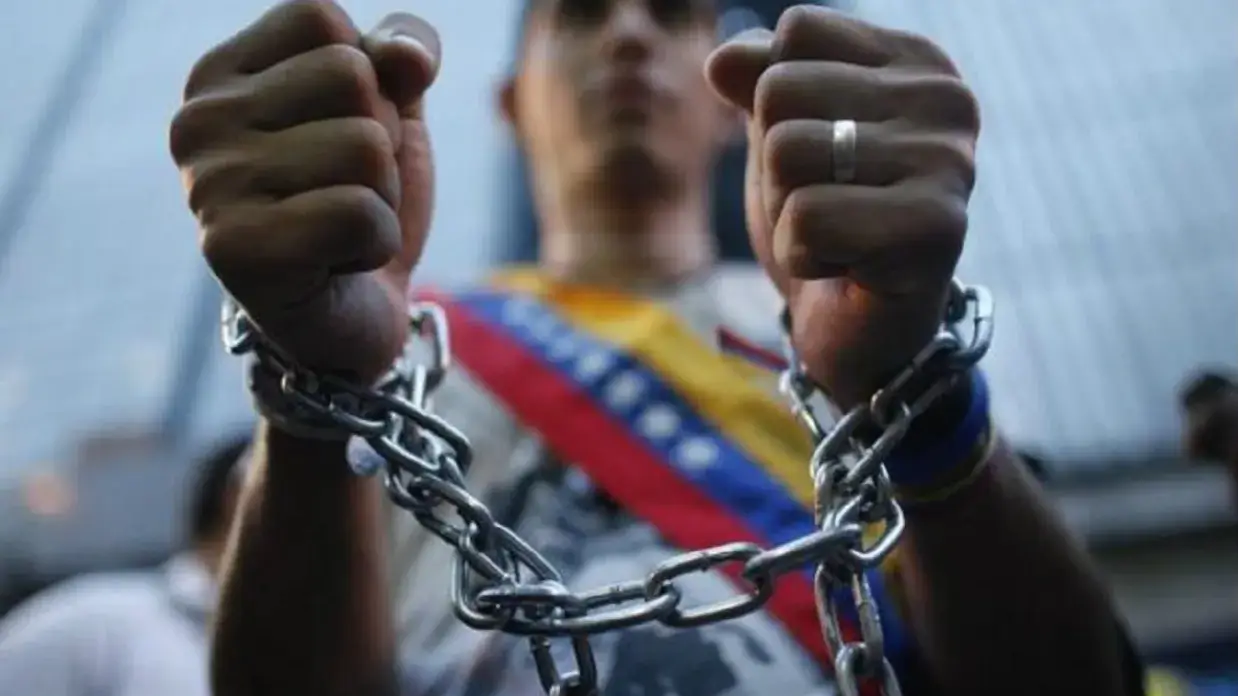How has the situation evolved over the past two years? While Cuba and Bolivia remain relatively stable, Nicaragua is carrying out mass expatriations, and Venezuela is experiencing the worst regression.
Persecution for political reasons is a common practice in less democratic regimes. In Latin America, this is especially true in Cuba, Nicaragua, and Venezuela, whose governments are currently considered autocracies by the leading democracy measurement indexes. Bolivia is also part of this group; despite still being classified as a hybrid regime, it has seen a marked shift toward autocracy in recent years. With two months remaining in 2024, the dynamics seen so far are extremely concerning.
A dramatic increase
Venezuela now leads the list of countries with the highest number of political prisoners in the Western Hemisphere. The increase has been abrupt and exponential. According to data provided by Foro Penal, 2023 ended with over 250 people detained for political reasons. This figure gradually rose during the 2024 election campaign. By July 28, election day, the number of political prisoners had reached about 300, mainly consisting of members of opposition campaign teams across the country.
If the situation was already troubling, the election day became a particularly negative turning point. The discrepancy between the election results announced by the National Electoral Council and those reported by the opposition generated significant unrest among the public. The state agency failed to release a breakdown of results by voting station. Meanwhile, the opposition managed to collect, scan, and publish about 84% of the official voting machine records on a website. The ensuing popular protests were swiftly suppressed by Venezuelan state security forces. Since then, hundreds of activists and protesters have been detained, bringing the total to 1,916 people.
Cuba and Bolivia
By the end of November 2023, according to the organization Prisoners Defenders, the Castro regime held the highest number of political prisoners in the Western Hemisphere, with 1,062 people imprisoned for political reasons. Among the charges, accusations that prisoners have a propensity for future crimes stand out. Article 72 of the Penal Code in effect until December 2022 cited this as due to “conduct that is clearly contradictory to the norms of socialist morality.”
Ten months later, the situation remains nearly the same. According to the same source, as of September 16, the number of political prisoners had risen to 1,105. With 31 arrests, March recorded the highest number of new detainees this year. Sixty-two political prisoners suffer from mental health disorders, a condition that makes them even more vulnerable to the torture, food shortages, and lack of medical care to which political detainees are subjected on the island.
In Bolivia, the number of political prisoners has remained relatively unchanged throughout 2024, after a noticeable increase in 2023. The high number of people detained for political reasons is particularly notable for a country that is not yet generally considered an autocracy. According to the Global Human Rights League, by October 31, 2023, Bolivia had 279 political prisoners, including former President Jeanine Áñez, who received a 10-year sentence and has now spent three years in prison. By October 2024, the total number remained at 269.
Expatriations in Nicaragua
In Nicaragua, the list of political prisoners has seen two sharp declines over the past two years, mainly due to two waves of expatriations. The first took place in February 2023, when approximately 222 political prisoners were released and deported to the United States. The second occurred recently, in September 2024, when 135 more people were expelled to Guatemala.
Exiled Nicaraguans are often stripped of their citizenship, and their assets in the country are frequently expropriated. Many of those expelled have been granted citizenship in Spain. According to the monthly list published by the Mechanism for the Recognition of Political Prisoners, following these two large waves of expatriations, by the end of October 2023, there were about 91 political prisoners in Nicaragua. By July 2024, the total number had dropped to 45, of which 37 are men and 8 are women.
Concerning patterns
The data outlined here suggests that the evolution of the political prisoner situation in Latin America in 2024 is extremely serious. The sharp increase in the number of political prisoners is primarily due to the surge in repression in Venezuela. However, the lack of improvement in Bolivia and Cuba, as well as the patterns seen in Nicaragua, prevent any claims of real progress.
In general, the most significant increases in political prisoner numbers tend to follow cycles of particularly large protests (Venezuela 2017; Nicaragua 2018; Bolivia 2020; Cuba 2021). They also follow highly controversial election episodes (Bolivia 2019; Venezuela 2024). In other words, repression is massively employed in these four countries whenever citizens express widespread dissent against these autocratic regimes.
*Text originally published in Diálogo Político












